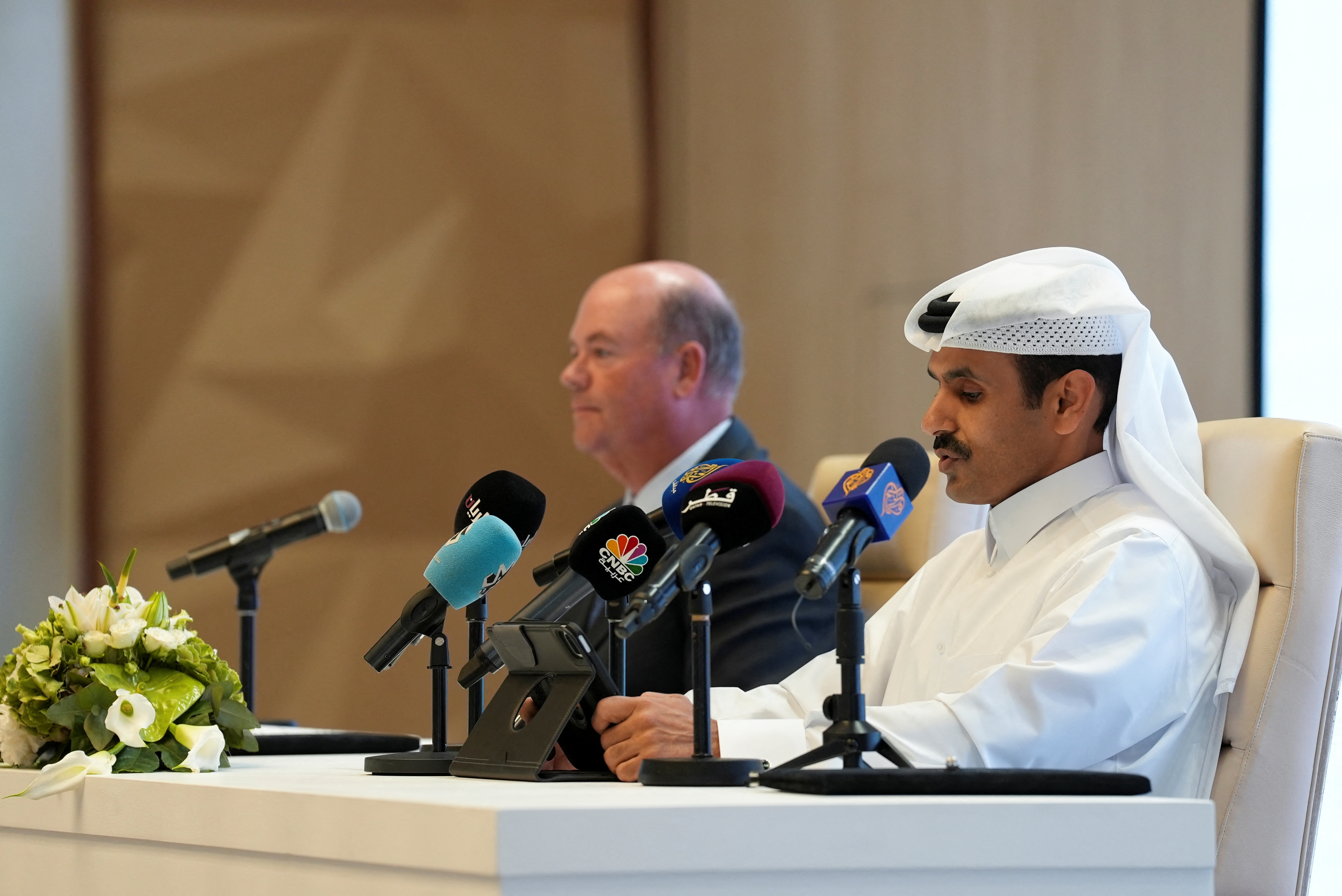
QatarEnergy and ConocoPhillips have signed two sales and purchase agreements to export liquefied natural gas to Germany for at least 15 years starting 2026 – the first such supply deal to Europe from Qatar’s North Field expansion project.
The agreement will provide Germany with two million tonnes of LNG annually, arriving from Ras Laffan in Qatar to Germany’s northern LNG terminal at Brunsbuettel, QatarEnergy’s chief executive said.
“[The agreements] mark the first ever long-term LNG supply agreement to Germany, with a supply period that extends for at least 15 years, thus contributing to Germany’s long-term energy security,” CEO Saad Al Kaabi said in a joint news conference with ConocoPhillips CEO Ryan Lance.
The agreement comes as the European economic powerhouse scrambles to replace Russian gas supplies that have been cut during the ongoing war in Ukraine. Officials gave no dollar value for the deal.
As European countries supported Ukraine after Russia’s invasion in February, Moscow slashed supplies of natural gas used to heat homes, generate electricity and power industry, creating an energy crisis that is fueling inflation and increasing pressure on companies as prices rose.
Germany, which got more than half its gas from Russia before the war, has not received any LNG from Russia since the end of August.
Energy crunch
A ConocoPhillips wholly-owned subsidiary will purchase the agreed quantities to be delivered by ship to the German receiving terminal, which is currently under development.
“Fifteen years is great,” German Economy Minister Robert Habeck told a business conference in Berlin following the agreement. “I wouldn’t have had anything against 20 [years] or longer contracts.”
However, he pointed to Germany’s plan to become carbon-neutral by 2045, placing limits on the quantities of gas the country would receive in the future.
Germany will have to start reducing its gas consumption from the mid-2030s if it wants to meet its ambitious goal to deal with climate change, the minister said.
Germany’s drive to prevent a short-term energy crunch also includes temporarily reactivating old oil- and coal-fired power stations and extending the life of the country’s last three nuclear power plants, which were supposed to be switched off at the end of this year, until mid-April.
The deal comes a few days after QatarEnergy signed a 27-year sales and purchase agreement with China’s Sinopec.
The North Field is part of the world’s biggest gas field that Qatar shares with Iran, which calls its holding South Pars.
QatarEnergy earlier this year signed five deals for North Field East (NFE), the first and larger of the two-phase North Field expansion plan, which includes six LNG trains that will ramp up Qatar’s liquefaction capacity to 126 million tonnes per year by 2027 from 77 million.
Since Russia’s invasion of Ukraine in February, competition for LNG has become intense, with Europe, in particular, needing vast amounts to help replace Russian pipeline gas that used to make up almost 40 percent of the continent’s imports.
On Tuesday, Al Kaabi said negotiations were ongoing with other German companies for further supply.







